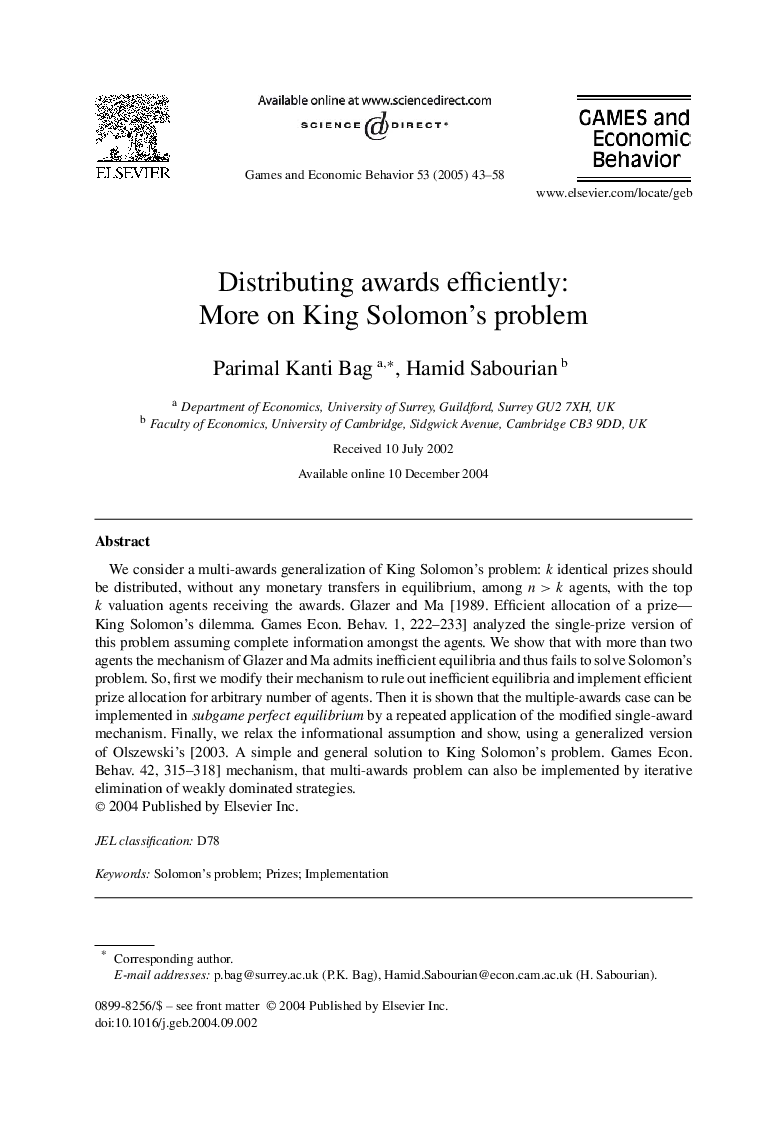| Article ID | Journal | Published Year | Pages | File Type |
|---|---|---|---|---|
| 9551699 | Games and Economic Behavior | 2005 | 16 Pages |
Abstract
We consider a multi-awards generalization of King Solomon's problem: k identical prizes should be distributed, without any monetary transfers in equilibrium, among n>k agents, with the top k valuation agents receiving the awards. Glazer and Ma [1989. Efficient allocation of a prize-King Solomon's dilemma. Games Econ. Behav. 1, 222-233] analyzed the single-prize version of this problem assuming complete information amongst the agents. We show that with more than two agents the mechanism of Glazer and Ma admits inefficient equilibria and thus fails to solve Solomon's problem. So, first we modify their mechanism to rule out inefficient equilibria and implement efficient prize allocation for arbitrary number of agents. Then it is shown that the multiple-awards case can be implemented in subgame perfect equilibrium by a repeated application of the modified single-award mechanism. Finally, we relax the informational assumption and show, using a generalized version of Olszewski's [2003. A simple and general solution to King Solomon's problem. Games Econ. Behav. 42, 315-318] mechanism, that multi-awards problem can also be implemented by iterative elimination of weakly dominated strategies.
Keywords
Related Topics
Social Sciences and Humanities
Economics, Econometrics and Finance
Economics and Econometrics
Authors
Parimal Kanti Bag, Hamid Sabourian,
